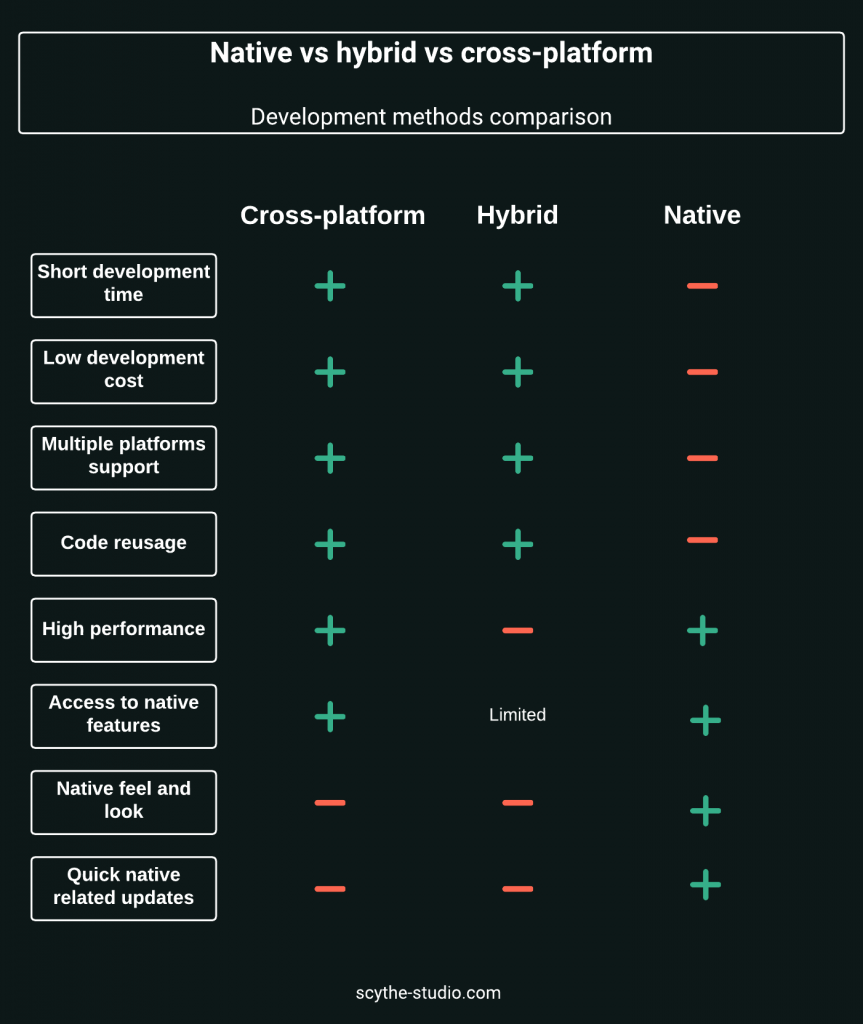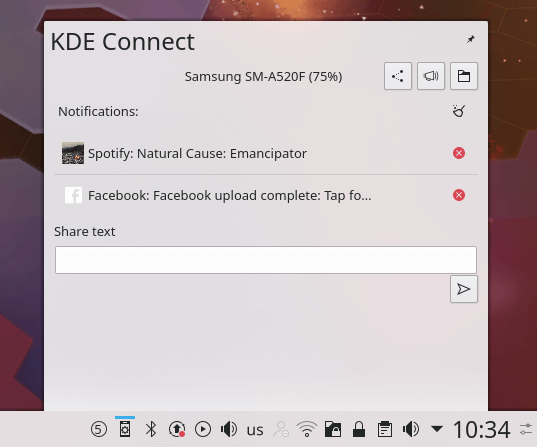
How to use Qt WebAssembly – The Complete Guide with demo
Hey, welcome back to another blog post. Today we’re going to talk about the new Qt WebAssembly. This post will […]
Join us at Qt C++ Warsaw Meetup - 21.08.2025
Sign up for free!
Windows, Linux, macOS, Android, iOS, Embedded, something custom, etc. etc… There are a bit of these platforms and systems, and something interesting can be created for each! When we create a desktop application, the thought of “What if I ran it on my smartphone, that would be awesome!” certainly comes to mind.
So what do we do, roll up our sleeves, and write an app from scratch right? Or is it possible to do things differently…? Well, it can be done more simply, using cross-platform development!
I welcome you to this comprehensive post on cross-platform application development. We will delve into its details, and explore the core concepts, methodologies, and cross-platform frameworks that drive its success. By gaining an understanding of cross-platform app development, you will be equipped with the knowledge and insights needed to navigate this approach with confidence and efficiency.
So let’s begin our adventure with cross-platform app development!
Originally, this post was published in 2022 however to ensure the highest quality of our content we have decided to update it. We try to keep our content up to date, but as you know this takes time. However, if you feel that a blog post in particular needs refreshing, please let us know!

Cross-platform development is a popular approach in the software development world, offering a comprehensive solution for creating applications that seamlessly operate across different operating systems, devices, or platforms.
Unlike the traditional native development approach, which involves separately coding and optimizing applications for each specific platform, cross-platform streamlines the process by enabling developers to write code once and deploy it across multiple platforms.
Cross-platform is not limited to software development with only a split between mobile or desktop platforms. The main advantage of this solution is the ability to create one application concurrently for different systems, desktops, or mobile devices. Coding an application using a cross-platform framework allows one to achieve intuitiveness and user-friendliness on the same level as in the native application but with the advantage of functionality on more than one platform.

Now that we know what cross-platform app development is, let’s focus on the benefits of using a cross-platform approach in software development.
The key advantage of cross-platform lies in its ability to save valuable time and resources. Rather than dedicating separate development cycles to each platform, developers can focus on creating a single codebase that works efficiently across various systems and devices. This consolidation not only accelerates the development process but also reduces the financial and physical resources required to maintain multiple code bases. But that’s not the only advantage, let’s look at a few more.
Remember that we analyze not only mobile apps but also multiplatform across desktops, the web, and more.

One of the most significant advantages of cross-platform is the ability to use a single code base to create applications for multiple platforms or devices. This shared code base not only increases productivity but also streamlines the development process, eliminating the need to write and maintain separate code bases for each platform. This also prevents us from having to write separate tests, separate documentation, separate diagrams, and so on.
Native apps are developed exclusively for a single platform, which leads to writing several apps for different platforms, which results in increased delivery time. In comparison, cross-platform app development allows the creation of an application for multiple platforms using the same source code, which results in a significant reduction in development time. And as we well know, time is money!
By opting for a cross-platform solution, businesses can avoid the need to maintain separate teams of developers, each responsible for working on the application in a different environment. Cross-platform is a streamlined approach, that not only saves money in the long run but also accelerates the development process, allowing for quicker revenue generation.
Additionally, fewer resources are required for testing and debugging, further reducing costs. You can check out our other post on how to save money with a low technology stack.
Supporting multiple platforms, cross-platform enables developers to reach a wider audience, thereby increasing the potential customer base and expanding market opportunities. By catering to users across different platforms, businesses can enhance their brand visibility and competitiveness in the market.
A good example is the smartphone market, where, for example, Android has a share of around 70 percent and iOS around 30 percent (heavily rounded figures). So if we develop cross-platform mobile applications and write them for Android, we are missing out on 1/3 of the audience!
Application development, particularly for native platforms, can be time-consuming and complex. Cross-platform simplifies this process by allowing developers to test and iterate on a single code base for multiple platforms simultaneously. This accelerated development cycle is especially advantageous when meeting tight deadlines or launching products quickly to capitalize on market opportunities.
Unlike common impressions, cross-platform development can deliver performance on par with or even better than native apps in many cases. Modern cross-platform app frameworks, such as Qt, offer robust performance optimization features that ensure smooth and responsive user experiences across different platforms.
Leveraging the capabilities of such cross-platform frameworks enables developers to achieve native-like performance while benefiting from the efficiencies of cross-platform app development. Take a look on our article about the 4 best frameworks for cross-platform desktop development.
A frequent case we encountered with our clients was a situation where an application had been developed for one platform, but there was a need to transfer it to another operating system. This is where the stumbling blocks begin. You have to plan the entire development of the application, find the right specialists (a specialist in one native technology may not know anything about another), plan the schedule and budget, etc., etc. In the case of cross-platform development, this will never happen. If a change of platform is required, all it takes is a few minor tweaks and you’re done.
In summary, cross-platform development offers a compelling array of benefits, including increased productivity, cost savings, broader market reach, and faster time to market. By harnessing the power of shared code bases and modern frameworks, businesses can develop high-quality applications that meet the demands of today’s diverse and dynamic digital landscape.
Ok, we already know the advantages of this approach, but it would also be appropriate to discuss the disadvantages. As we well know, there is no perfect solution in the world, so it is important to always look at both sides.

The pace of development in native environments is quite fast, resulting in constant change and the need to adapt. Frameworks need to update their tools for all platforms to support new features and systems. In such a scenario, cross-platform developers may have their hands tied until the framework is updated, while native application developers can immediately start working on implementing new systems.
One of the more demanding challenges for developers is the difficulties caused by an application’s limited access to native features of a given platform. As well as the performance degradation caused by inconsistent communication between native and non-native functions. However, that strongly depends on the technology that you’re about to choose. For instance, the Qt framework deals well with those issues.
Another challenge for cross-platform projects is keeping the design and user experience consistent across platforms. It’s like making sure your app looks and feels right on each platform. Getting this balance right involves careful planning and tweaking. This therefore raises problems for application GUI testing because we have to make sure that the UI looks good on both small screens such as smartphones or HMI panels and large screens such as computer monitors.
Testing and fixing bugs also pose big problems. Making sure your app works well on all devices and systems takes a lot of testing. And when there’s a problem on a single platform, it can be tricky to fix it without causing issues on others. In addition, if we are targeting a significant number of mobile devices, this generates further costs for the purchase of test equipment when testing requires hardware.
Developing cross-platform applications also carries a disadvantage in having the right knowledge. A programmer who has been developing desktop applications all his life may find it difficult to adopt certain concepts from mobile apps (for example, desktop applications rarely need to take into account the dynamic change of screen orientation from portrait to landscape mode).
Still, despite these challenges, cross-platform development is popular because it can save time and money. By tackling these issues head-on, developers can create great apps that work smoothly across various platforms.

There is more to app development methods than just using cross-platform. Each solution has its pros and cons, based on which it is best to match the app development method to your needs. Therefore, let’s turn to present the differences between the different approaches.
Native development – The most salient feature of native app development is creating it exclusively for a single platform or system. Developers can fully customize and adapt the native application to the device, ensuring a high-reliability rate. However, this solution has its limitations. If there is a need to create an application for several platforms, then you will have to develop a separate application for each platform. Hence, creating native applications is more time-consuming and more financially draining.
Hybrid development – This solution is distinctive for combining the internal parts of a web application with the external features of a native application. This development solution allows you to create one application for several platforms. Unfortunately, it also has its drawbacks in terms of the lower performance of such applications compared to cross-platform or native. Depending on the framework of choice, you may also face problems with the implementation of native systems features.
Cross-platform development offers the flexibility of creating one application that functions across various platforms. While this approach can streamline development and reduce costs, the choice of framework plays a crucial role. Each framework has its strengths and weaknesses, impacting factors such as performance, user experience, and ease of implementation of native features.
There are many frameworks for developing cross-platform applications, and each of them has its advantages and disadvantages. We created a comparison of Qt, Native React, and Flutter to give an idea of their form.

If you want to combine the maximized performance of your application with the ease of creating its availability on various platforms, you should consider choosing the Qt framework. First of all, Qt has a lot of experience on the market – it is a mature framework, that has been around for decades, that provides cross-platform solutions while constantly developing. Using Qt framework is not only limited to cross-platform mobile app development but also focuses on desktop as much as embedded. A great solution is the Qt Quick module, which allows you to create a user-friendly interface combined with superb software performance using the QML declarative language.
If you are interested in taking a wider look at cross-platform frameworks, we encourage you to read one of our blog posts. We compare the 4 most popular and best frameworks there while outlining their advantages and disadvantages.
Egoo.health is a cross-platform mobile app that our experts had the opportunity to work on. Egoo is an instrument that allows performing several different measurements for blood biomarkers in a simple and fast way. This mobile application allows users to access all of the Egoo functionalities, as well as store and display the results of the tests, using their smartphones. All of that with the eye-catching, yet clear and minimalistic graphical user interface.
Scythe Studio experts used the previously mentioned Qt framework. The logic of the application was implemented using the C++ language to provide the best performance and portability. This way we could reuse existing C++-based libraries shared between other client applications and contribute to them, by extending their functionalities.
C++ is a good base for hybrid apps as it’s the most natural programming language to access and integrate with platform-specific code. For example, iOS native code is written in Objective-C which can be added to a C++ project. Have a look at our Flutter vs React Native vs Qt comparison for more insights about those app development frameworks.
Thanks to the cross-platform nature of Qt, time-to-market was greatly reduced as we could deploy both Android and iOS applications using a single codebase. There was no need for an additional team or switching technologies to provide an app for those two disparate systems. What is also worth mentioning is that while going cross-platform we have not sacrificed performance for the number of platforms available. Qt applications provide near-native performance.

The Zoho Books Forecasting App, developed using the Qt framework, was to integrate seamlessly with Zoho Books accounting software this cross-platform desktop application offers businesses a tool for analyzing financial data across various platforms. With its user-friendly interface and robust feature set, the Zoho Books Forecasting App simplifies financial analysis and decision-making for organizations of all sizes.
Powered by the Qt framework, the Zoho Books Forecasting App demonstrates the efficiency and flexibility of cross-platform development. Using a single codebase, our developers have created an application that runs smoothly on Windows, macOS, and Linux platforms. This approach streamlines the development process and ensures consistent performance and user experience across different operating systems, enhancing accessibility and usability for a diverse user base.
This application exemplifies the numerous advantages of cross-platform development, including reduced development time, cost-effectiveness, and broader market reach. You can notice that it’s the second project we developed using the Qt framework. Qt, unlike other technologies like React Native, allows developing hybrid apps also for desktops.

It would be pointless to describe cross-platform development only based on the applications we have developed ourselves, so we will present one more application – KDE Connect: (https://apps.kde.org/kdeconnect/). This application allows you to easily connect your smartphone to your computer and then transfer files, display notifications from your phone on your computer or even remotely control your computer from your phone. Of course, these are just a few of the functionalities listed. It is available on Linux operating system, Android, FreeBSD, Windows, and macOS.
This application is available for everyone to download from all major application shops like Google Play, App Store, or Microsoft Store. What’s more, it’s open source so everyone can see how KDE has approached the issue of hybrid app development.
This application was also written using the Qt framework which only further demonstrates that it is an excellent cross-platform technology.

Screenshot of KDE Connect: https://apps.kde.org/kdeconnect/
In conclusion, cross-platform app development is a very good option to choose. The main advantage of developing applications using such a solution is the common codebase, which makes the development process much faster and cheaper. Also, it helps to provide the best possible performance which results in a better user experience. Qt framework can provide all these features, which gives it a beneficial solution for customers and developers.
If you are interested in the commercial application of cross-platform app development then I encourage you to check out our mobile development services. Scythe Studio can help you with both the requirements engineering, UX/UI designing phase, and the actual coding!
That’s it for today’s blog post, see you next time!
Let's face it? It is a challenge to get top Qt QML developers on board. Help yourself and start the collaboration with Scythe Studio - real experts in Qt C++ framework.
Discover our capabilities
Hey, welcome back to another blog post. Today we’re going to talk about the new Qt WebAssembly. This post will […]

Users of embedded devices – from industrial controllers to consumer electronics – are often unaware of hidden vulnerabilities that threaten […]

Graphical user interfaces (GUIs) are becoming more and more important in embedded devices – from home appliances to medical equipment […]